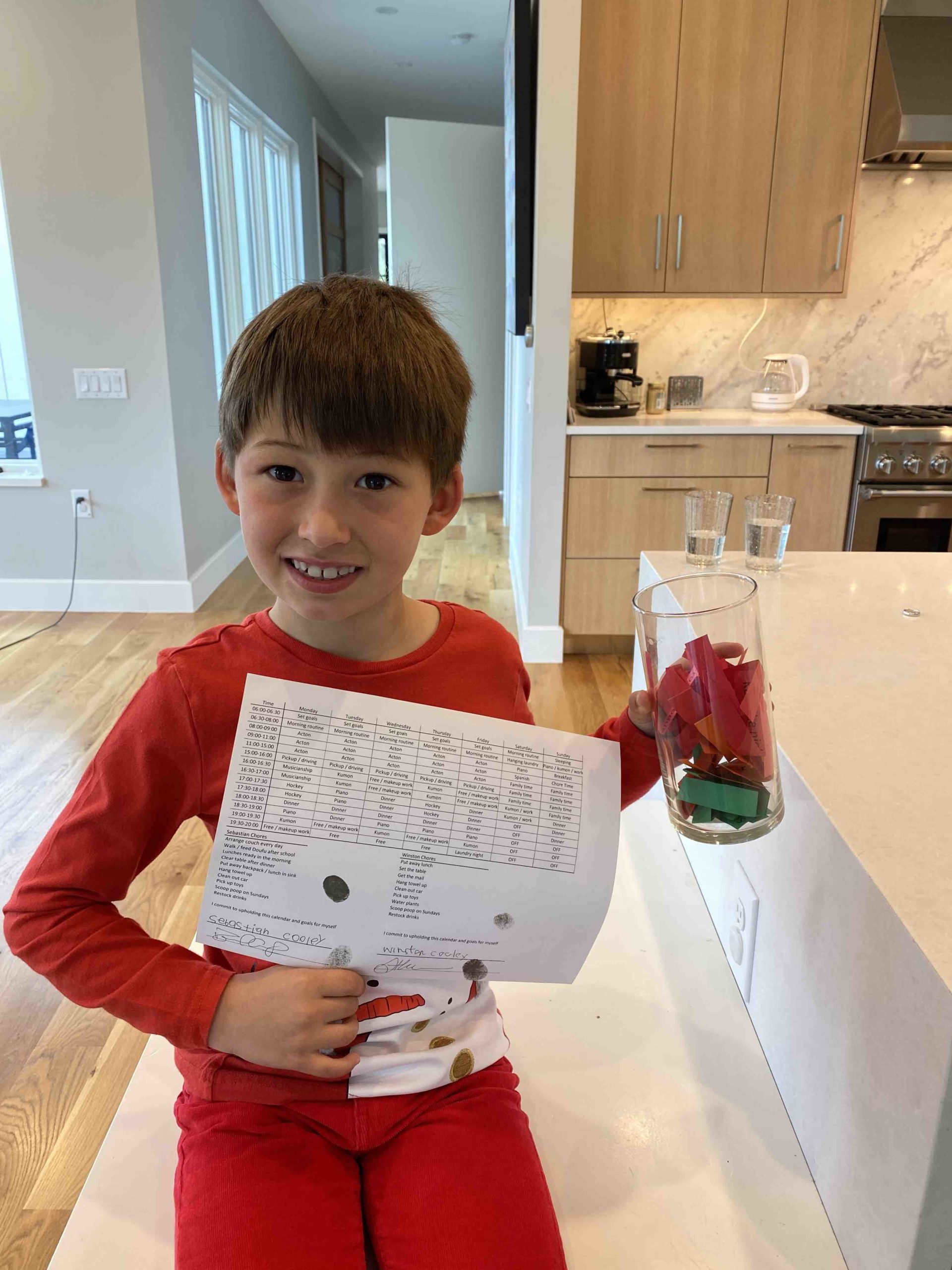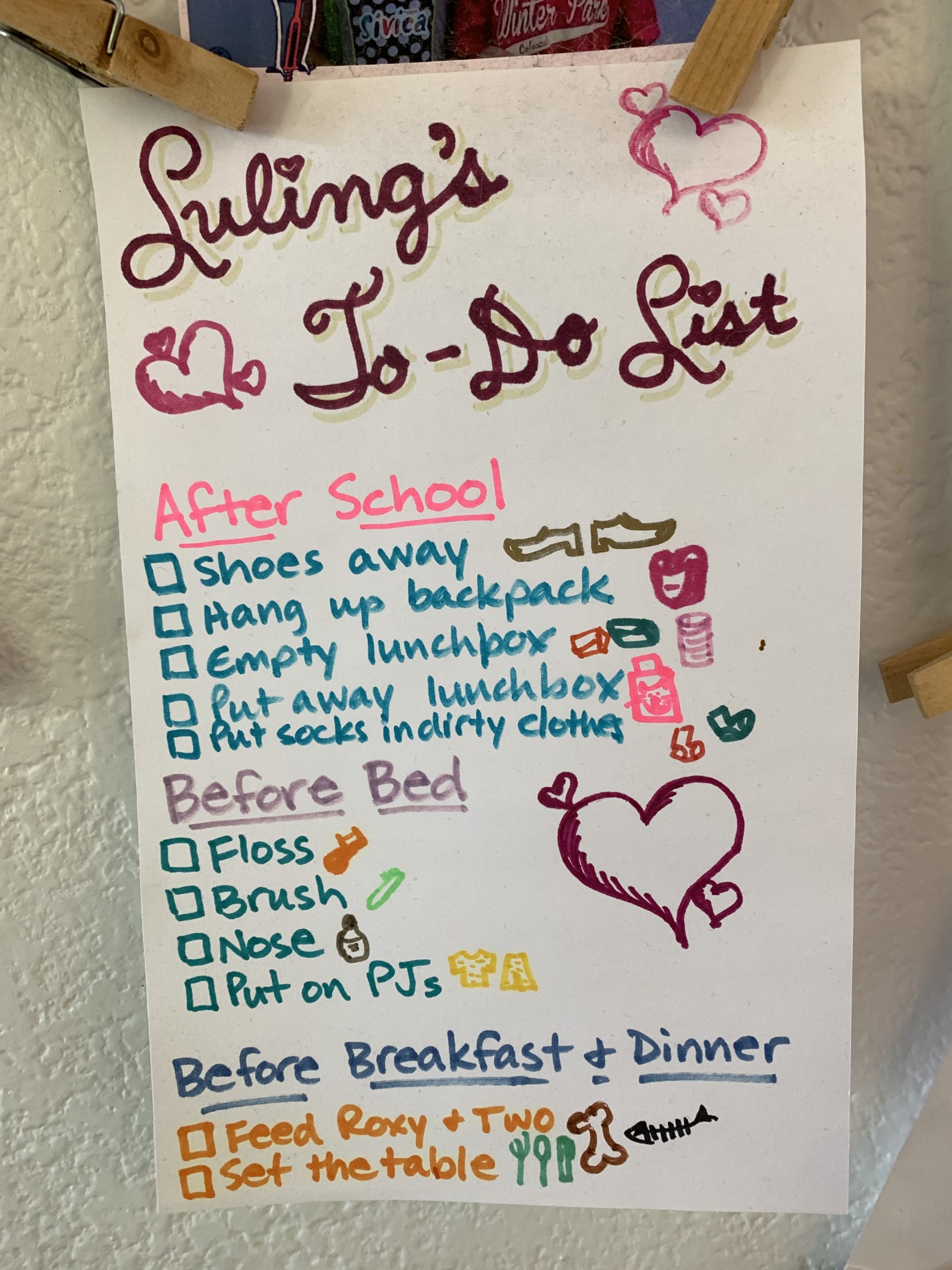With the school year fast approaching many families are again working to navigate a portion of the week with their children at home. What is the best way to approach this reality? It is a highly structured approach, or giving the kids more free-range? In this week’s blog post, Laura Sandefer gives us some Acton tools which can easily be implemented at home.
– Kori Stack, M.Ed
Acton Tools To Use At Home
by Laura Sandefer February 28, 2020
Today in their morning discussion, the elementary studio Eagles busted the myth that “they play all day at Acton without instruction, direction or structure.”
False! they said. They continued by comparing home life and studio life: which is more structured? The consensus was that life in the studio is more structured than life at home.
Their discussion highlights a dichotomy between what parents perceive and what actually happens in a day at Acton – which in turn creates confusion around what their role should be in this learning journey. “If I’m not supposed to intervene in my child’s life, how can I get him to clean his room or be well-mannered at a restaurant?”
Here’s a gold nugget of clarity I hope helps: Intervening (a.k.a. interfering) is not the same thing as supporting. Acton parents who know this difference enjoy a grounded sense of peace that is otherwise impossible. Our vision for the role of an Acton parent is that of loving supporter (which includes the roles of guide, mentor, boundary-enforcer and consequence-deliverer.)
Just as the Acton tools and processes are meant to build a solid support system for the Eagles, they can do so at home, too.
Here are a few of the tools they use at school: daily schedule, studio contract, challenges posted in Journey Tracker, squad leader and servant leaders, badge plans and S.M.A.R.T. goals, checklists, the Hero’s Journey framework, Town Hall meetings and discussion rules of engagement.
The tools ones most often used at home are:
- Checklists (see the wonderful example below shared by Acton mom, Rachel.)
- Schedules (see the rather amazing example below shared by Acton parents, Daniel and Stephanie.)
- Plans/SMART Goals – Just like the Eagles have individual badge plans, families who create a Family Plan and hold regular family meetings report their lives are happier and more meaningful. Family meetings, then, serve as a “Town Hall” to solve problems, set new goals, celebrate wins and revise rules.
- Contracts – Knowing boundaries is essential to living well together. And, understanding consequences for crossing boundaries is not only fair, it is essential to build a trusting relationship.
- The Hero’s Journey framework – using this tool as you face problems in life gives a sense of meaning and inspires optimistic action rather than victim-based reaction.
If you need inspiration around using checklists, read Atul Gawande’s “The Checklist Manifesto.” But the best resource about the Acton tools is your child. Enjoy!


